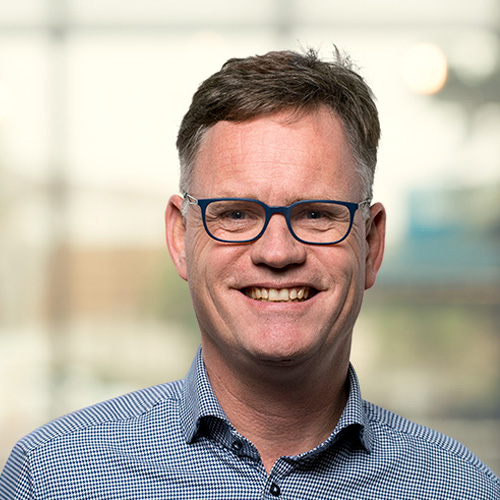

Transition to e-fuels will impact position of industrial harbors
26-01-2022
 In the transition to e-fuels, major energy ports in North-Western Europe like HIC Rotterdam are expected to retain their hub function for energy and feedstocks. However, in the future their focus will be less on local fuel production, and more on logistics and international transport to bring hydrogen, e-fuels and associated chemical commodities to customers in their hinterland. While hydrogen is expected to be produced locally still partly, the largest share of e-fuels will be imported. This will have large consequences, not only on logistics and storage but also on local refinery operations and the associated petrochemical industry. To facilitate this transition, cooperation throughout the value chain, from regional to global level, is essential. This is the outcome of the CHAIN project, a collaboration between VoltaChem, Smartport, TNO and industrial partners.
In the transition to e-fuels, major energy ports in North-Western Europe like HIC Rotterdam are expected to retain their hub function for energy and feedstocks. However, in the future their focus will be less on local fuel production, and more on logistics and international transport to bring hydrogen, e-fuels and associated chemical commodities to customers in their hinterland. While hydrogen is expected to be produced locally still partly, the largest share of e-fuels will be imported. This will have large consequences, not only on logistics and storage but also on local refinery operations and the associated petrochemical industry. To facilitate this transition, cooperation throughout the value chain, from regional to global level, is essential. This is the outcome of the CHAIN project, a collaboration between VoltaChem, Smartport, TNO and industrial partners.
In an earlier Power-2-Fuels study, we already showed that e-fuels, produced from green hydrogen, will most likely supply a considerable share of the demand for sustainable fuels. E-fuels are expected to start playing a role in sustainable transport as from 2030. In the recent CHAIN project, experts from VoltaChem, Smartport, TNO and a group of stakeholders (BP, Deltalinqs, Gate Terminal, Nobian, Port of Rotterdam, Shell, Sohar Port/Freezone and Vopak), each from different parts of the value chain, worked together to answer the following questions:
1. What would be a logical role for HIC Rotterdam in the e-fuels value chain?
2. What is the best way for HIC Rotterdam to distinguish itself from other clusters?
3. Which part of the value chain can best be attracted to Rotterdam (production, storage, infrastructure?
Hub function retained, but changed
For e-fuels, the creation of limited local strategic production capacity is important in order to stimulate development of innovative production technologies and to secure a future position in production, use and transit of hydrogen. However, in the long run the largest share of e-fuels, other than hydrogen, will most probably be imported. This will be necessary because the Netherlands is expected to have a shortage of renewable energy due to the further electrification of society as a whole. In addition, import from countries with low energy costs is less expensive. In order to limit international (geo)political dependance, it is important to exert influence by developing relationships with the right parties and countries, and to set up initial pilots for import/export and technology development.
Hydrogen will be one of the main feedstocks in this transition. From a strategic and economic point of view, hydrogen should be produced locally as much as possible (for direct use but not as feedstock for e-fuel production). Due to the fact that a conversion to a carrier like LOHC or to liquid hydrogen is not needed when hydrogen is employed locally, it will be more economic to produce than import when used directly.
Changing value chains, the need for collaboration
The energy transition, which is needed to realize climate goals, will have a major impact on all actors involved in the transport value chain. This includes end users, refineries and other fuel producers, port operators, vehicle suppliers, refuelling infrastructure providers, storage providers and all connected value chains. Large reductions in CO2 emissions are necessary for companies to maintain their “license to operate.” To actually establish the transition to e-fuels, structured cooperation throughout the entire value chain, on a regional to global level, is essential.
Concluding, it can be stated that a transition to e-fuels will bring HIC Rotterdam many challenges. But also opportunities when the necessary stakeholders unite forces, paving the way towards a future in which transport and production has become sustainable and in which HIC Rotterdam can remain a major energy and industrial logistic hub for North West Europe.
Next steps
The CHAIN study raises new questions that need attention in follow-up research such as: what will be the impact on Rotterdam as a bunker port? And how will the petrochemical cluster and its feedstock streams change? This will be addressed in follow-up research by VoltaChem, Smartport, TNO and their industrial partners.
--
Click here for the TNO report
Click here for additional TNO research into e-kerosine/e-diesel routes
Click here for the SmartPort narrative
Share this page:
